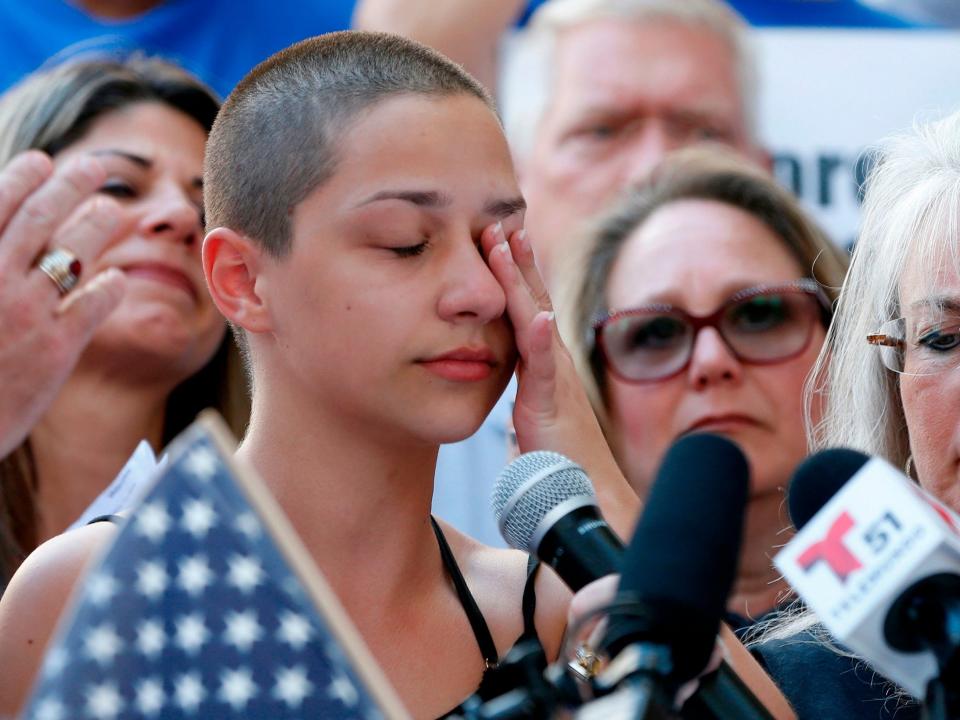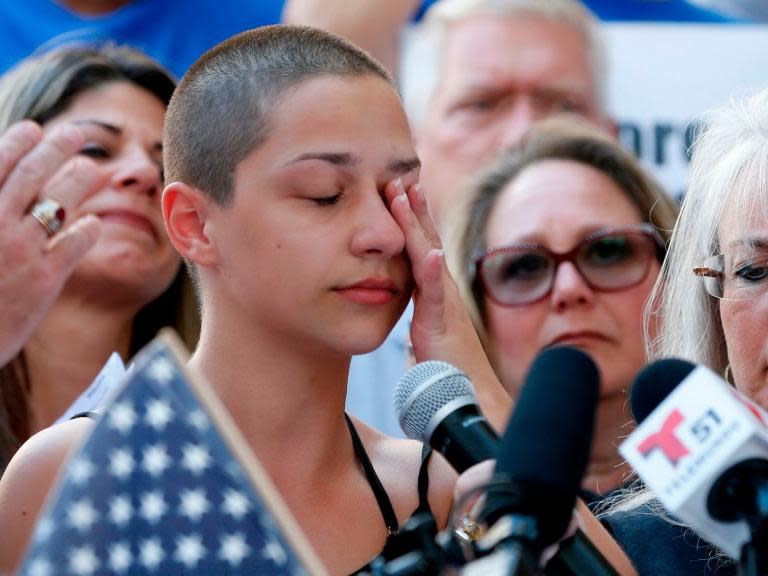Parkland shooting: How the NRA is more vulnerable than ever after a year of protests and a wave election
One year after gunfire began in the freshman building of Marjory Stoneman Douglas High School, the movement those bullets sparked has swept through the US and opened a new chapter on guns in America.
Guns have come to dominate political debate this past year in way unseen previously in the US, with massive protests from March for Our Lives attracting headlines and major news coverage — and virtually all Democrat presidential candidates supporting stricter gun control. Meanwhile, dozens of states have moved to pass new gun control laws in an historic effort, as communities across America continue to be scarred by gun violence.
And, for gun control advocates, the last year has proven that the National Rifle Association (NRA) — for so long seen as an unstoppable force in American politics — is finally tumbling.
“I think there was this perceived power from the NRA for a long time. Now the curtain has been pulled back, and we see this is an organisation that is extremist,” Andrew Patrick, a spokesperson with the Coalition to Stop Gun Violence, told The Independent. "The NRA is at their weakest point that they've been at in a long time."
In the year since 14 students were killed by an AR-15, alongside three adults, more than 1,200 American children have been killed by guns, according to an analysis and project developed to tell the stories of many of those young people.
Those deaths — in cities and rural communities, impacting virtually every social and economic group in the country — have fuelled the progress gun control advocates have seen. More than 20 states have passed new gun regulations, including new measures in Florida, a state known for its lax gun laws, according to the Giffords Law Centre.
Gun control advocates have also seen success in elected government, with 95 candidates backed by the gun control group Giffords being elected to the House of Representatives in last year’s midterm elections while 32 top politicians back day the NRA lost their seats.
“Last November we elected a new Congress ready to fight unapologetically to keep Americans safe from gun violence. But these leaders weren't elected in a vacuum—they represent a clear shift in the politics of guns. Previously, it was a third rail,” Peter Ambler, Giffords Executive Director, told The Independent.
“Today, candidates run on gun safety and they're elected on gun safety. That's because voters demanded change, they demanded action. They rejected the lies peddled by the NRA and sent a clear message to Congress that now is the time to act," he added.
In the immediate aftermath of the Parkland shooting, the NRA was thrust into the spotlight with student survivors name checking the lobbying group for the money it pushes into American politics to maintain the right to access guns of all kinds in the US.
That attention saw major setbacks for the group. At least 20 major American companies severed ties with the organisation, including the likes of Delta Airlines and United Airlines. While the NRA argued that Americans have the right to buy the types of semi-automatic rifles that have been used in mass shooting after mass shooting, major retailer Dick’s Sporting Goods announced it would no longer carry the weapons in its stores — and the company saw sales increase by over 4 per cent in the quarter that followed that announcement.
With those boycotts as a backdrop, member dues also fell off for the NRA, leaving the organization in the red for the second year in a row. Just two years after spending a record $54m in the 2016 election — including $30m to support Donald Trump — the NRA’s spending in the 2018 midterms dropped sharply, with just over $10m being spent by the group in campaign donations and outside spending, according to the nonprofit the Centre for Responsive Politics.
Democrats running in 2020 appear poised to make gun control a major campaign issue — at least in the primaries — after years in which gun control advocates say the party appeared afraid to make waves.
Major contenders in the Senate — including Kamala Harris Cory Booker, Kirsten Gillibrand, Amy Klobuchar, Bernie Sanders, and Elizabeth Warren — have all co-sponsored an assault weapons ban.
With the Democratic primary season fast approaching, there’s little difference between many of the candidates' proposals. They all want to pass gun control legislation that they say will keep American communities safer than the active shooter drills at schools, which have horrified parents and frightened school children.
“When you have the energy of the youth vote, it changes everything. Social movements are built form the ground up and we’ve been doing a lot of hard work for a long time,” Mr Patrick said. “I think that, because of the way the American people became fed up with this issue and (because) the survivors really started speaking out … it became a rallying cry.”
“Like all social movements, the last to get the message are the elected officials,” he said.


